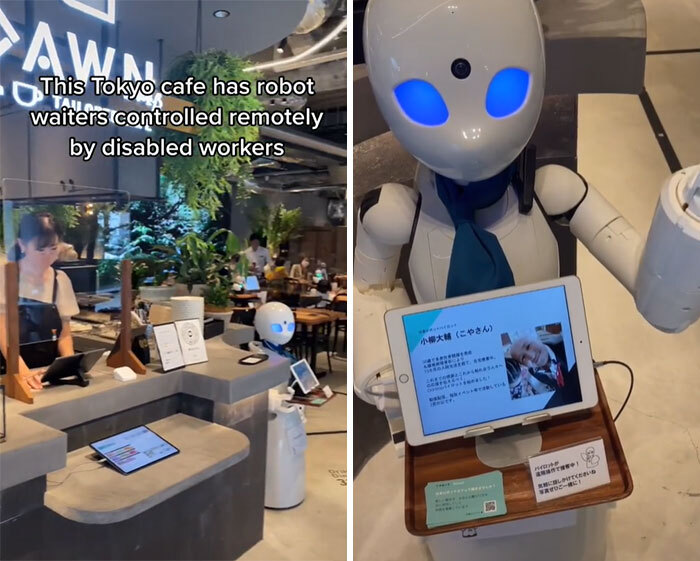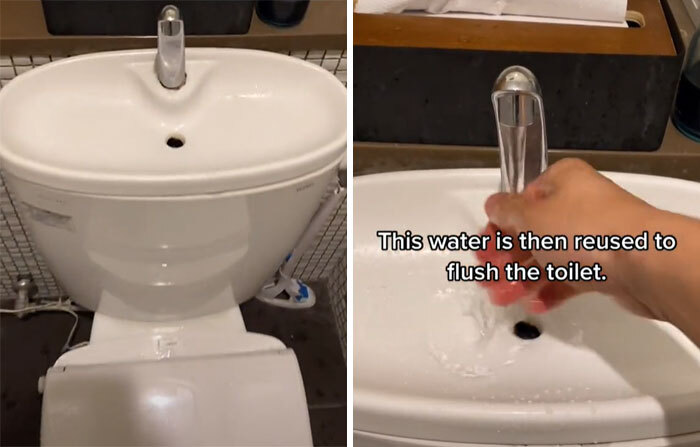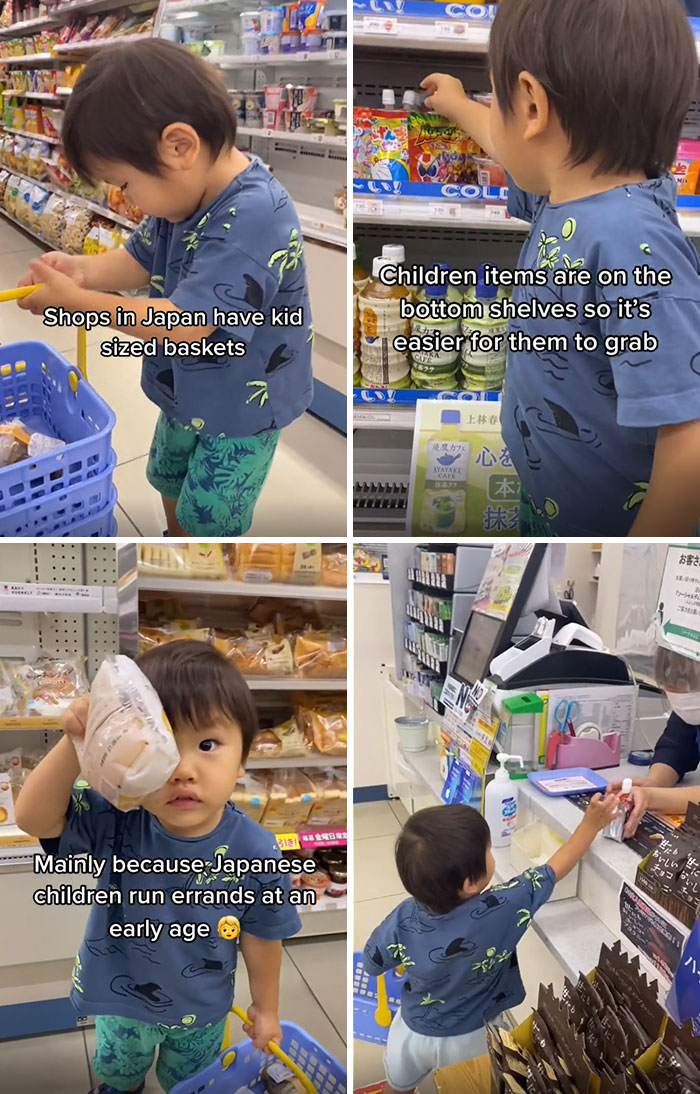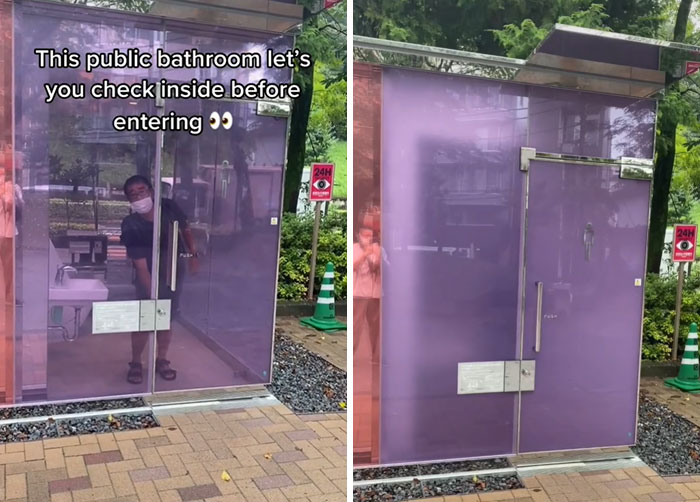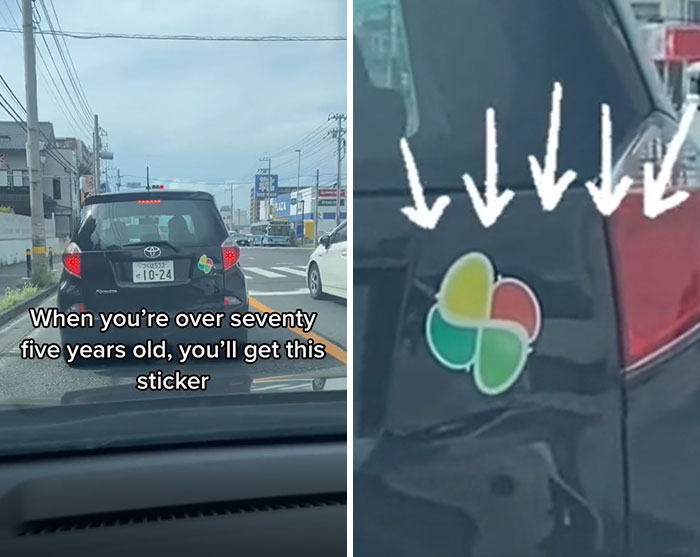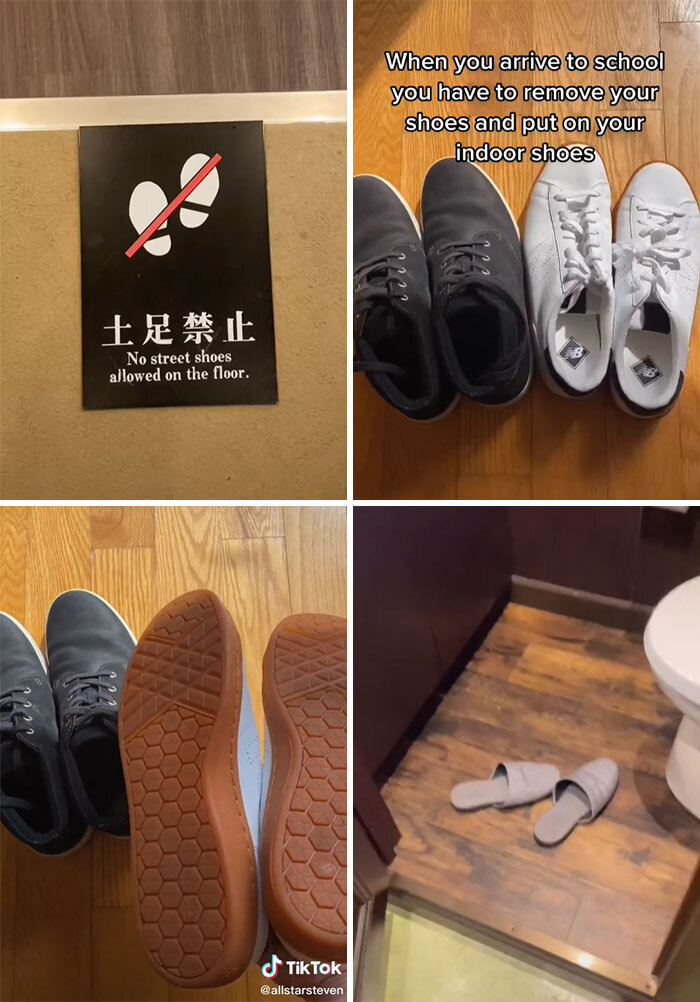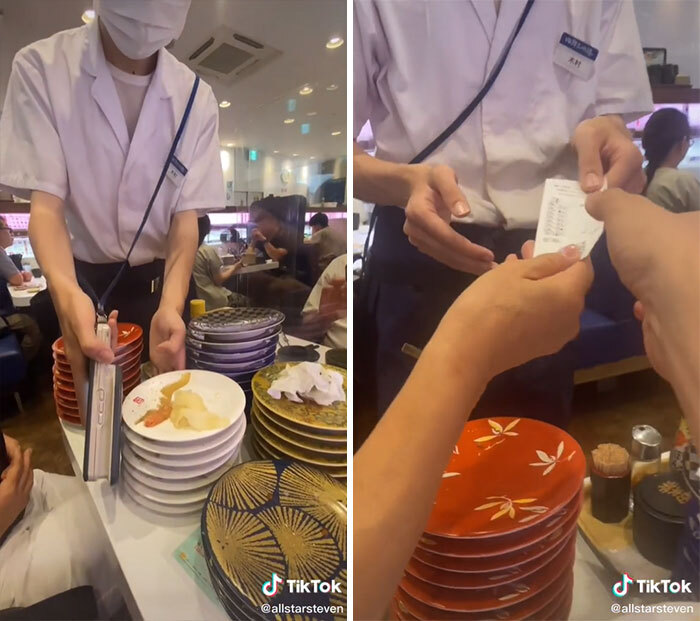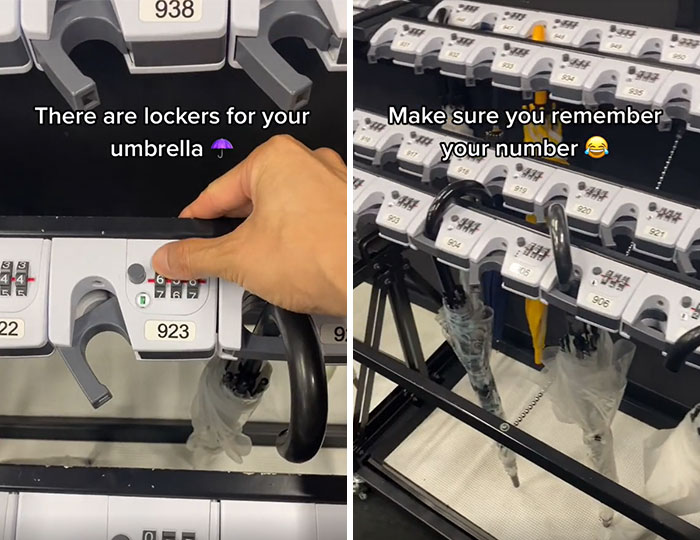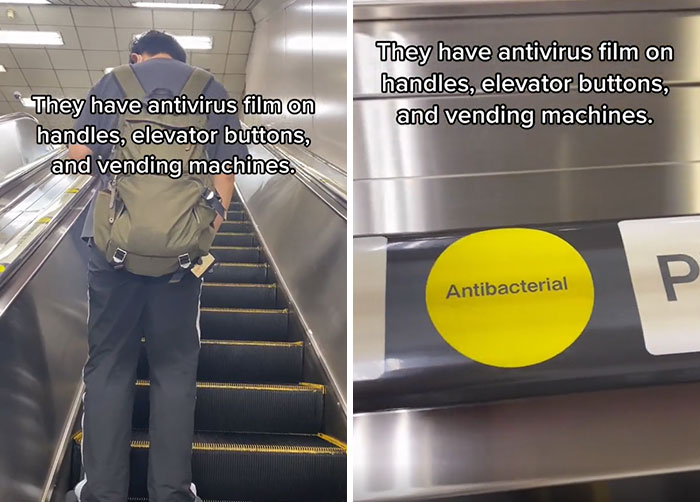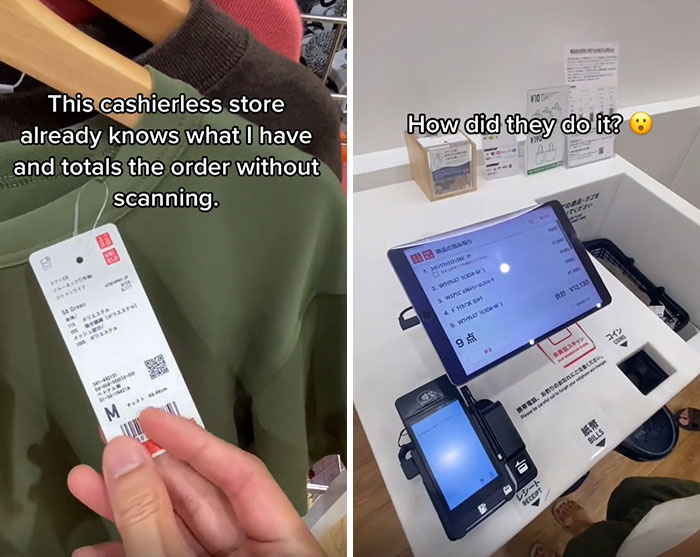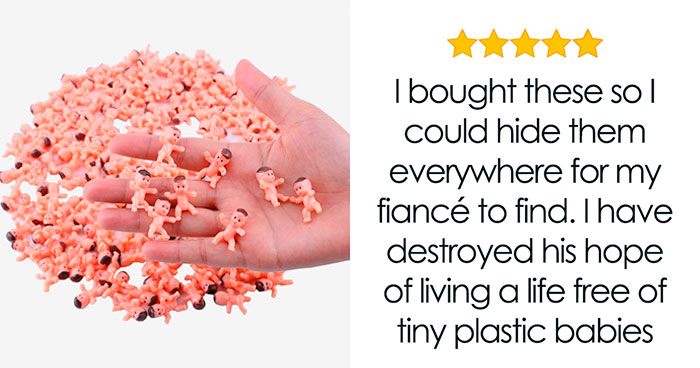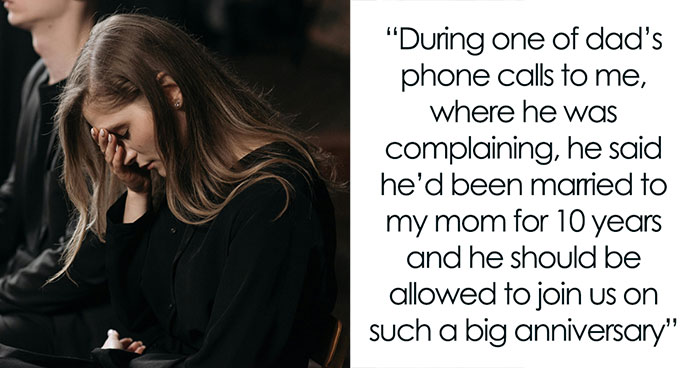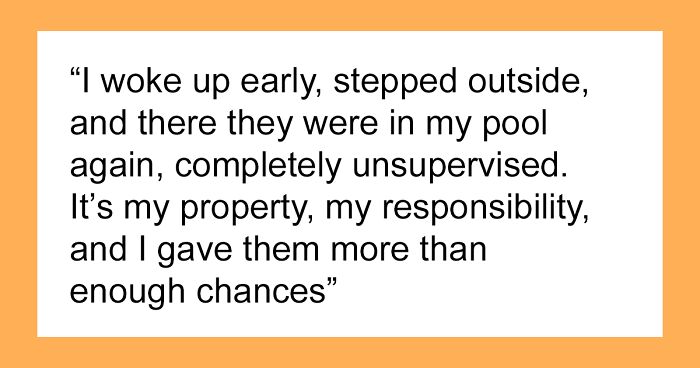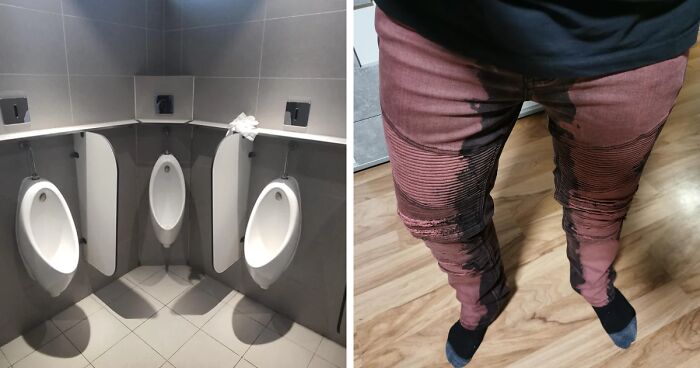
Guy Shows Why Japan Is Already Living In The Future, Goes Viral (15 Pics)
InterviewFor those of us who still haven’t been to Japan, the country seems like something straight out of a fantasy or sci-fi novel: a land of endless possibilities, both bizarre and incredibly wise. Those who’ve visited Japan or even moved there full time, however, notice hundreds of small details that make everyday life that much easier and far more comfortable. Everyday life doesn’t have to be a chore, and the Japanese know the right way to live conveniently.
TikToker Steven Wong, aka ALLSTAR STEVEN, posts viral videos about all the random, unusual, and plain peculiar things in Japan that actually make absolute sense to have. Like lockers for your umbrella, kid-sized shopping baskets in grocery stores, special stickers on cars driven by seniors over the age of 75, and more!
Japan is great when it comes to making life more convenient for everyone and Steven is doing a public service by sharing all of these intelligent, citizen-oriented decisions in his entertaining videos. Check out his coolest facts about life in Japan below and be sure to follow him if you’d like to see more content just like this.
I reached out to Steven and he was kind enough to answer a few of my questions about his videos and life in Japan. "I recently traveled to Japan during the pandemic and out of pure boredom from quarantining, I decided to create TikToks to pass time. And after reading all the supportive comments, it motivated me to keep going," he told Bored Panda, adding that the Japanese are very considerate of each other and think everything through which is why they have so many convenient things everywhere. You'll find the rest of the interview, including a list of tips for first-time travelers to Japan, below!
This post may include affiliate links.
This Tokyo café has robot waiters controlled remotely by disabled workers. For some people this gives them an opportunity to work, socialize and feel more inclusive.
“The people are very considerate of each other and they think everything through very thoroughly,” he told Bored Panda.
According to Steven, the very best times of the year to travel to Japan are in spring and early fall. That way, it's not too hot and not too cold. "If you want to catch the cherry blossom season, go towards the end of March or beginning of April," he suggested.
The video creator also said not to worry if you don't know the language. "Don’t be intimidated, you can get around by downloading Google translate," he said. "Getting around is really simple too with Google Maps."
Steven had a bunch of other useful tips for travelers as well. "Download the 'Suica' app to pay for trains and busses. If you’re traveling to different regions in Japan, I highly recommend getting a 'Japan Rail Pass,' also called the JR Pass, which is a rail pass for overseas visitors," he said.
When you flush the toilet, water will run so you can wash your hands. This water is then reused to flush the toilet.
It's also not a bad idea to have some cash on you at all times. "Most places take credit cards and debit cards but it’s always good to have some local currency on hand (Yen). You can convert your currency into Yen at the currency exchange shops or from ATMs." Steven added that in Japan there are "rarely any trash cans", so he urged travelers to "bring a bag to hold your trash."
Steven shared with Bored Panda that he rarely gets creative blocks when it comes to making videos because he's so passionate about all things Japanese. However, it still happens from time to time. "When I do, I just tell myself to keep pushing forward and to just be myself," he opened up about how he gets past these blocks.
Shops in Japan have kid sized baskets. Children item are on he bottom shelves so it's easier for them to grab. Mainly because Japanese children run errands at an early age.
Thats so thoughtful. What confuses me is why little kids at the age of 4 are running errands
Japanophile Steven has just over 178k followers over on TikTok and his videos have gotten over 5.7 million likes, collectively. His videos are so popular, that they’re often shared by other creators on Facebook and YouTube alike.
Steven describes himself as a blogger who focuses on “everything Japanese.” His tagline of “Eat, Travel, Weeb, Repeat” also shows his love of Japanese culture and life.
This public bathroom let's you check inside before entering. And when you lock the door, the glass turns opaque.
I know these! One of my friends studies them for design in school. They're made by Shigeru Ban, and are pretty cool (but acknowledging Hans comment, I'm not sure how they'd cope during a power outage?)
During a couple of previous in-depth interviews, I spoke about culture in the Land of the Rising Sun with Japanese language expert Kotryna Kvietkauskaitė. She explained to Bored Panda that Japanese people are incredibly warm and welcoming of foreigners, especially those who put in the time, energy, and effort to absorb their culture and speak their language. Like in many other countries, in Japan, your efforts and respect for the culture won’t go unnoticed.
“In Japan, when a foreigner speaks Japanese, they can often get praise for their language skills, even if they simply introduced themselves which is one of the first things that students learn to do,” Kotryna told Bored Panda that the Japanese will give you brownie points for trying and doing your best, even if your skills aren’t perfect yet.
They have capsule hotels for as little as $20 a night. Your keycard gives you access to the elevators and lockers. You also get an amenity bag that includes your necessities. I'm lowkey claustrophobic but these pods are roomy.
This fridge opens from both sides! It's a lefties dream come true.
It’s not just Japanese language expert Kotryna who thinks that learning the language and the customs is important before going to Japan—or any country for that matter. Professor Christine Vogt, the Director of the Center for Sustainable Tourism at Arizona State University, told me that it is a vital part of doing your background research before traveling abroad.
“More than likely that is what draws a person to visit a certain place. The more local knowledge a traveler has, the more a traveler can feel like a local and fit in," Professor Vogt said that if we care about a particular country and want to visit it, then, by extension, we’ll most likely care about the language, culture, and everything else. Of course, real-life isn’t always so idealistic and neat.
Bathrooms have baby seats and bag holders.
The plethora of hooks, shelves, and changing platforms are great. The dearth of diaper changing tables in men's restrooms is a sexist design flaw that needs to change.
When you're over seventy five years old, you'll get this sticker. This lets other drivers know you're old.
"Local customs can include how a traveler dresses, eats, uses a cell phone, etc. When a traveler is out in a community such as walking in a downtown area or eating in a restaurant, these local customs can come into play,” Professor Vogt told Bored Panda.
“For example, in Buddhist countries, a woman who has not covered her shoulders or legs may not be allowed into temples or even a restaurant. Learn as many local customs as you can and a few key words to enhance your experience.”
When you arrive to school you have to remove your shoes and put on indoor shoes. There are also separate slippers for the restroom.
The waiter totalled our order by scanning our plates.
I'm guessing this is one of those buffet kind of restaurants, but with food circling on a moving track around the tables. The plates' respective colours and shapes are indicators of the price for the item they contain and the cost is calculated by plate. In other restaurants, it doesn't get scanned and calculated like this.
It can be difficult to identify exactly when you know enough about the language of the country you’re interested in: it’s all very subjective and depends on your learning speed, confidence, and other things. According to Japanese language expert Kotryna, everyone learns at their own pace. Nobody should be in any kind of rush. And nobody should be comparing their personal journey to that of others.
There are lockers for your umbrella. Make sure you remember your number.
So uuuuuh... What do you do if you have an umbrella with a straight handle?
“One person might take 5 years until they learn to read Japanese fiction without any problems while another person might take 10 years. In other words, there isn’t a clearly-defined point that can be reached after which a person can confidently state that they know Japanese as well as the average native,” the expert said that there isn’t a ‘perfect’ moment to visit the country of dreams... like Japan.
They have antibacterial film on handles, elevator buttons and vending machines.
This cashierless store already knows what I have and totals the order without scanning.
(RFID scans all the items in the basket)
They have Black Q-tips with a ribbed texture. So that it feels good when you're penetrating the ear lobes. And it's visually satisfying when you see all that gunk.
Good, take my little brother. "But Japan was where they made Inuyasha! I'm going to live there when I grow up!" He's 10, so right about at that pure idiot stage that we all go through XD.
More useful and informative articles like this please, keep up the good work!
The title might change as I'm writing this, but, when you're getting repetitive with all these "unusual" things in Japan, the sensationalist effect wears off. Having said that, Japan is awesome. Would be nice to see some more of the actual cultural articles I'm seeing on Japan dedicated sites.
The Japan is so weird/amazing/different articles may be repetitive and largely inaccurate, but least it's better than the millionth - 'someone said/did something offensive - here's some people saying they are upset about it' or 'here's me wearing clothes that don't fit me to point out that celebs are bad or fat shaming is wrong or something' article that BP is churning out relentlessly nowadays. Remember when they used to post art (except Disney princesses) and community sourced content - that was cool
Load More Replies...Oh, I absolutely agree. I don't give a damn about family drama, unless it's my own, which thankfully doesn't end up on these Internet "articles". I used to be the one to say something about these, but I gave up. Now I just give my downvote and avoid them in large circles.
To declare any country awesome I want to know first what is there score on combating global warming, destruction of the environment, and animal welfare. - "The greatness of a nation and its moral progress can be judged by the way its animals are treated." - Mahatma Gandhi
Japan is indeed a very great place but I hope people would not put it on a pedestal and treat it as some wonderland. Misogyny is very rampant here. Foreign people get stared at a lot. You can't fight people back when you get groped and all that. So just remember it still has some problems like every other country. :)
Alright, Japan is cool and all but all of these "omg Japan's the bestest place in the world" articles makes me feel like I have to mention that Japan also have huge issues with xenophobia, misogyny, fertility, suicide rates and work-life balance (acting as a contributing factor for many of these issues).
Japanese are humans. Any humane, kind, universally compassionate, empathetic and responsible people who care about our planet and ALL its inhabitants are extraordinary human beings ; that is what matters, not where they come from.
By far the best is that 99% of people here wear masks in public at all times during the pandemic, and I've never seen anyone get in a fight about it.
There wasn't a single thing I didn't like about Japan. Well, except the hoards of pushy Chinese tourists, but that's not Japan's fault!
Believe me, communication in Japanese is not a breeze, even though the author implies it’s a simple thing. My spouse and I lived there for two years recently. Almost no one we met would admit to speaking English and Japanese is a difficult language to learn — three alphabets, for example. Google Translate was a constant source of both amusement and frustration to us, as it is far from foolproof. Japanese culture offers some impressive lessons, all right, but accept you will be treated as an outsider.
Good, take my little brother. "But Japan was where they made Inuyasha! I'm going to live there when I grow up!" He's 10, so right about at that pure idiot stage that we all go through XD.
More useful and informative articles like this please, keep up the good work!
The title might change as I'm writing this, but, when you're getting repetitive with all these "unusual" things in Japan, the sensationalist effect wears off. Having said that, Japan is awesome. Would be nice to see some more of the actual cultural articles I'm seeing on Japan dedicated sites.
The Japan is so weird/amazing/different articles may be repetitive and largely inaccurate, but least it's better than the millionth - 'someone said/did something offensive - here's some people saying they are upset about it' or 'here's me wearing clothes that don't fit me to point out that celebs are bad or fat shaming is wrong or something' article that BP is churning out relentlessly nowadays. Remember when they used to post art (except Disney princesses) and community sourced content - that was cool
Load More Replies...Oh, I absolutely agree. I don't give a damn about family drama, unless it's my own, which thankfully doesn't end up on these Internet "articles". I used to be the one to say something about these, but I gave up. Now I just give my downvote and avoid them in large circles.
To declare any country awesome I want to know first what is there score on combating global warming, destruction of the environment, and animal welfare. - "The greatness of a nation and its moral progress can be judged by the way its animals are treated." - Mahatma Gandhi
Japan is indeed a very great place but I hope people would not put it on a pedestal and treat it as some wonderland. Misogyny is very rampant here. Foreign people get stared at a lot. You can't fight people back when you get groped and all that. So just remember it still has some problems like every other country. :)
Alright, Japan is cool and all but all of these "omg Japan's the bestest place in the world" articles makes me feel like I have to mention that Japan also have huge issues with xenophobia, misogyny, fertility, suicide rates and work-life balance (acting as a contributing factor for many of these issues).
Japanese are humans. Any humane, kind, universally compassionate, empathetic and responsible people who care about our planet and ALL its inhabitants are extraordinary human beings ; that is what matters, not where they come from.
By far the best is that 99% of people here wear masks in public at all times during the pandemic, and I've never seen anyone get in a fight about it.
There wasn't a single thing I didn't like about Japan. Well, except the hoards of pushy Chinese tourists, but that's not Japan's fault!
Believe me, communication in Japanese is not a breeze, even though the author implies it’s a simple thing. My spouse and I lived there for two years recently. Almost no one we met would admit to speaking English and Japanese is a difficult language to learn — three alphabets, for example. Google Translate was a constant source of both amusement and frustration to us, as it is far from foolproof. Japanese culture offers some impressive lessons, all right, but accept you will be treated as an outsider.

 Dark Mode
Dark Mode 

 No fees, cancel anytime
No fees, cancel anytime 



